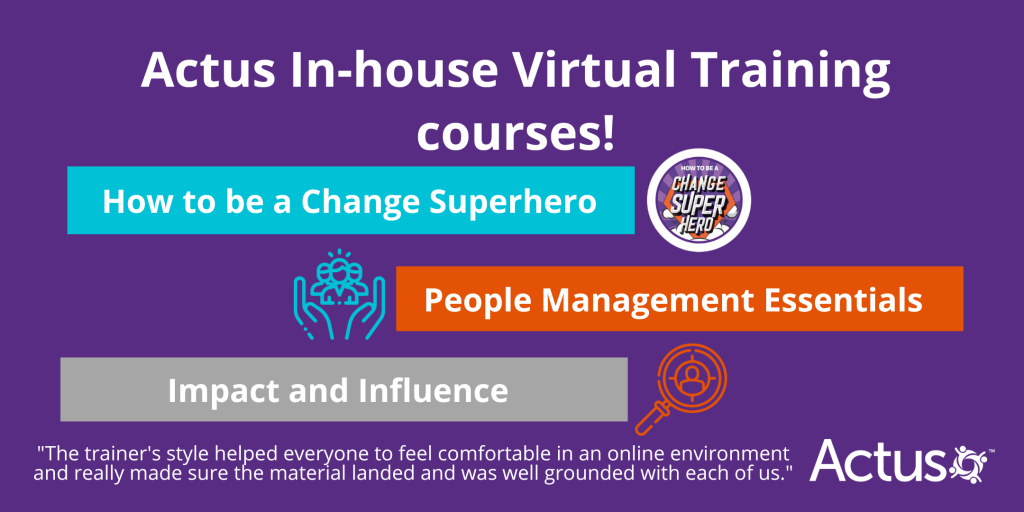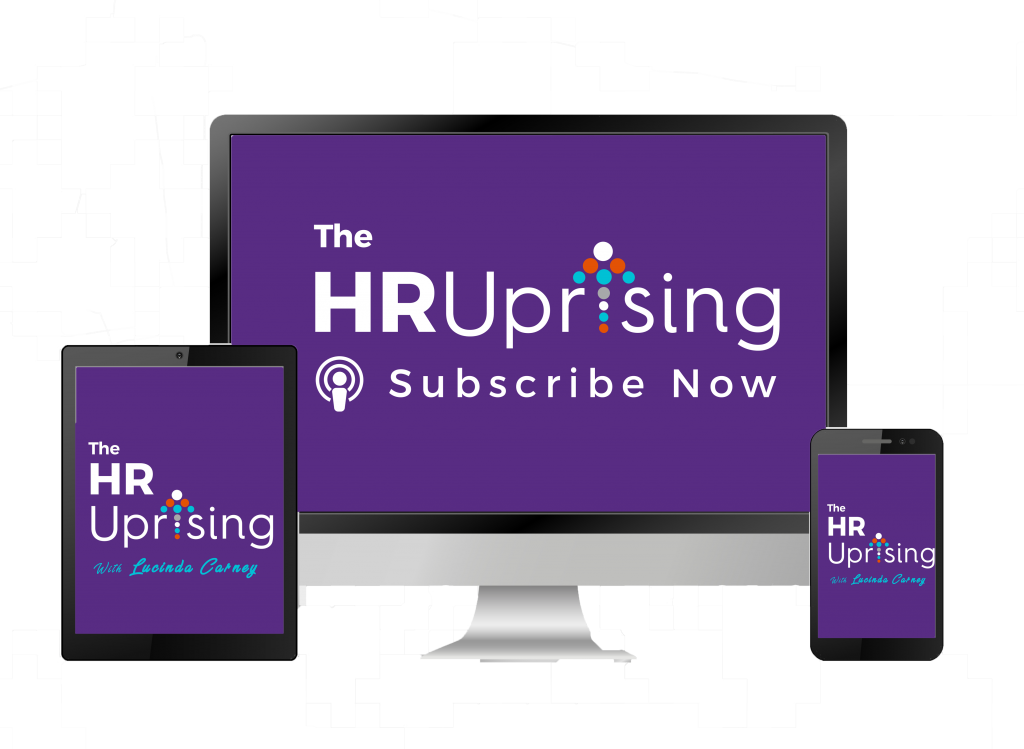
This Episode: Imposter Syndrome: what is it and how can we overcome it?
In this HR Uprising episode, Lucinda takes a practical look at the “Imposter Syndrome” phenomenon that is surprisingly common. Asking just what is it? How can we overcome it?
Certainly, imposter syndrome affects both men and women and links in particular with high achievers. What has your experience been? Where do you think it stems from?
Sharing her personal experience, Lucinda explores how we can recognise imposter syndrome in others and in ourselves, and ultimately, how we can avoid the imposter cycle.
Valuable Resources
- Host of The HR Uprising Podcast, Lucinda Carney, is also the founder and CEO of Actus Software, where you can find additional free HR Resources: https://actus.co.uk/free-performance-management-resources/
- Actus Software resources particularly relevant to this podcast:
- Blog: How to overcome the Imposter Syndrome
- Infographic: The 5 Types of the Imposter Complex
- Join the HR Uprising LinkedIn Group
Key Takeaways
- Most of us will suffer from Imposter Syndrome at some point in our lives. It often occurs in the moment following the endorsement of our skills or position.
- Imposter Syndrome can also be considered as a sense of not feeling worthy enough to be in a certain position in life or the unworthiness of being recognised as so.
- When we’re younger we are often told that showing off, or boasting, are bad qualities. Consequently, we associate good fortune or telling the world about our good fortune, as negative traits.
- Indeed, 70% of people have experienced Imposter Syndrome at some point in their lives. The term was officially coined in 1978, where it was originally thought to only affect women, although now it has been demonstrated to affect everyone.
- It’s quite normal to feel like an imposter if you’re going into a new role, or embarking upon a new project. This is particularly common if there’s a preconception about your skill levels from the outset.
- Later, it’s quite possible to experience the “imposter cycle”. In this case, the more success you have, the more worried you become about being “found out”.
- According to Dr. Valerie Young, there are five types of imposters:
- The Perfectionist – Those who get anxious if they fail to achieve their extreme goals
- The Expert – People who don’t feel satisfied until they know everything
- The Soloist – An individual who finds comfort in their solitude for fear of being “found out”
- The Natural Genius – People who are used to achievement, and who wobble when they don’t find natural success
- The Superhero – The workaholic who can experience burnout, but cannot seem to stop.
Best Moments
- ’There’s still a lot of research in this area, and it hasn’t really evolved’
- ‘It’s immodest to be recognised, or to be the centre of attention’
- ‘It’s not a mental disorder’
- ‘Without question, every individual has something of value’
- ‘Certainly, it’s about being logical and kind to ourselves’
- ‘We can’t actually grow without moving out of our comfort zone’
- ‘I shouldn’t allow my thoughts to stop me from achieving the things I want to achieve’
About The Host
Lucinda Carney is a Business Psychologist with 15 years in Senior Corporate L&D roles and a further 10 as CEO of Actus Software where she worked closely with HR colleagues helping them to solve the same challenges across a huge range of industries. Certainly, it was this breadth of experience that inspired Lucinda to set up the HR Uprising community to facilitate greater collaboration across HR professionals in different sectors, helping them to ‘rise up’ together.
“When we look up we rise up”
Contact Method
- Join the HR Uprising LinkedIn community – https://www.linkedin.com/groups/13714397/
- Email: Lucinda@advancechange.co.uk
- LinkedIn: https://www.linkedin.com/in/lucindacarney/
- Twitter: @lucindacarney
- Instagram: @hruprising
- Facebook: @hruprising
- YouTube: Channel
Subscribe To The HR Uprising Podcast Now:
















Add comment